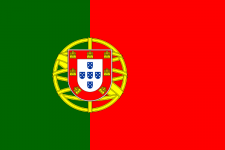
On 22 November, the international initiative Next Door Family brought together immigrant and native families living in all parts of Portugal around lunch menus with typical food of the host family's culture. This is the 4th time Portugal takes part in this initiative, with the central aim of sponsoring families to welcome at home one or more families they do not know.
The organisers counted on the collaboration of 73 projects of the Choices Programme (Programa Escolhas), 19 municipalities, eight civil society organisations and 3 public entities.The event gathered a total of 855 participants (423 immigrants and 432 Portuguese citizens), including 141 assistants, who volunteered as facilitators, building bridges between cultures. With 274 participant families (143 immigrants and 131 Portuguese) from 35 different countries, the initiative illustrated the diversity of immigrants living in Portugal. However, the number decreased compared last's edition when 1717 participants and 232 volunteers in Portugal were reported.
The Next Door Family is an initiative established in 2004 by NGO Slovo 21 from the Czech Republic, based on the concept of "Inclusive Neighbourhoods". The event also occurred on the same day, at the same time, in two other European countries (Spain and Czech Republic) and in one African country (Cape Verde), with a total of 804 participating families.
Details
- Publication dates
- Geographic area
- Portugal
- Source
- Posted by
